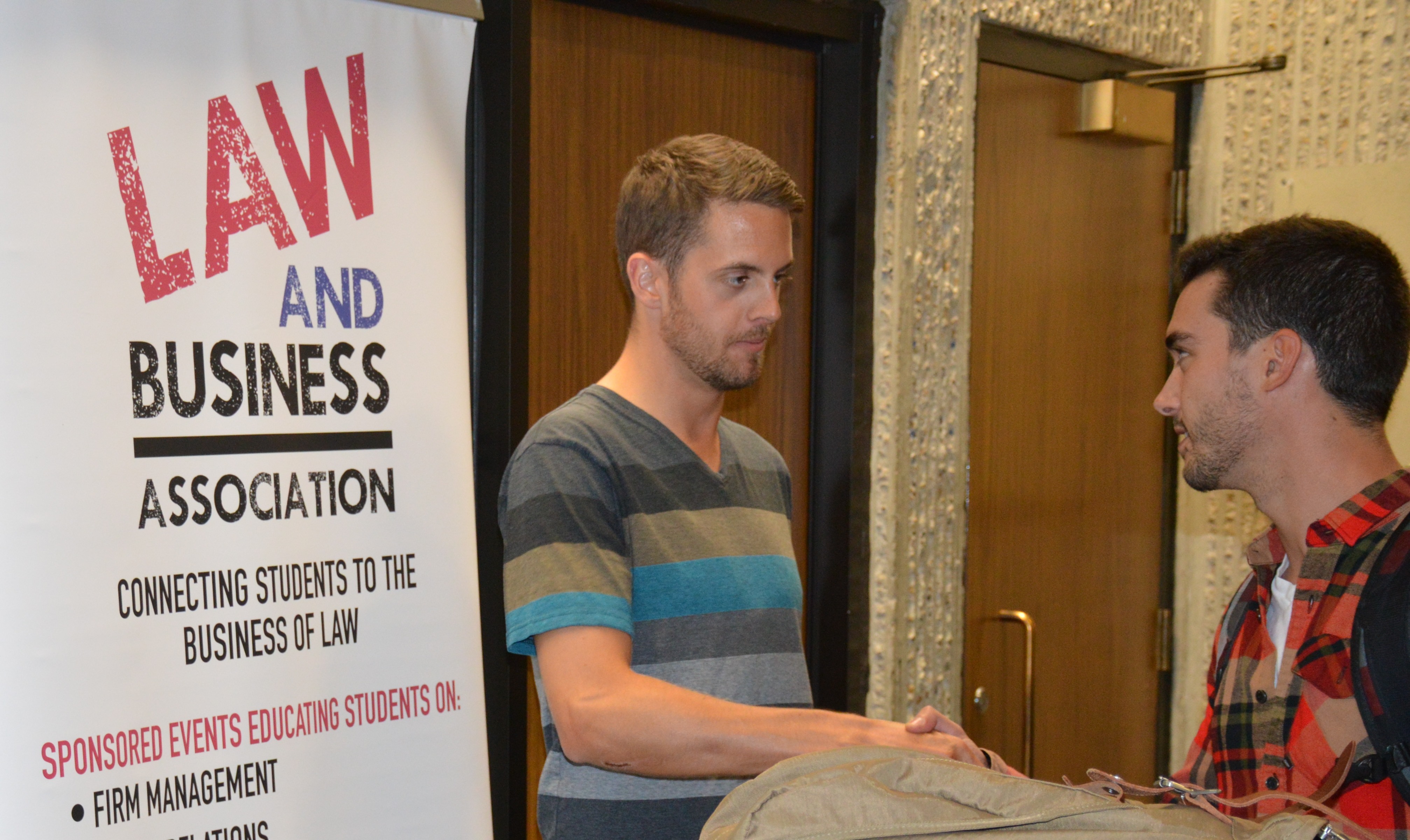
UAlberta Law 3L student Dylan Gibbs (left) representing the Law and Business Association at Clubs Fair, Friday, September 8, 2017
Dylan Gibbs doesn't have the typical background of a prize-winning essayist.
The third-year JD student at UAlberta Law decided to apply for law school after a career as a software developer, having previously achieved a BSc in Computer Science with distinction at UAlberta.
"I never considered myself a writer," said Gibbs, whose paper, "Whose Restructuring is it Anyway? The Disconnect Between Third-Party Releases and the CCAA's Restructuring Purpose," garnered the top prize in the 2017 Insolvency Institute of Canada (IIC) Law Student Writing Contest.
"I've always been interested in language and logical thinking. Law presented a new challenge, something that would be different on any given day. The appetite for writing came later," he said.
Gibbs' award-winning essay, originally written for Professor Rod Wood's second-year Bankruptcy and Insolvency course, concerns the Companies' Creditors Arrangement Act (CCAA) and its application in complex cases such as the aftermath of the 2013 Lac-Mégantic rail disaster in Quebec's Eastern Townships.
The original intent of the CCAA was simply to enable insolvent companies owing monies in excess of $5 million to restructure their business and financial affairs. However, Gibbs asserts that the Act is increasingly being used to release solvent companies from liability to bring about swifter settlements in cases involving complex, multi-party litigation.
"In the Lac-Mégantic aftermath, there was never any thorough discussion about why this use of the CCAA should be permitted," he explained. "The decision suggests that it was a matter of public interest to reach a settlement as quickly as possible, and the Court accepted that it would take an undesirable amount of time for victims to recover through traditional litigation."
Gibbs' acknowledges that the technique used in the Lac-Mégantic aftermath benefitted victims by allowing for swift recovery. He argues, however, that "the legal precedent of the Lac-Mégantic decision is troubling," and that "previous cases allowed CCAA proceedings to release solvent third parties from liability only where it was necessary to restructure an insolvent company." He added "that was not the case in Lac-Mégantic and the decision does not provide a compelling justification for changing that requirement."
2017 has proven an exciting year for Gibbs, who originally hails from Calgary. As part of winning the award, Gibbs received an invitation to attend the IIC's Annual Conference and General Meeting this month in Banff, where the award will be presented. On a more personal note, Gibbs got married this year.
"I'm deeply grateful to Professor Wood for sparking my interest in this topic and for providing helpful feedback throughout the writing process," he said.
"Insolvency litigation is an absolutely fascinating area of law, and I look forward to continuing to work in this area."